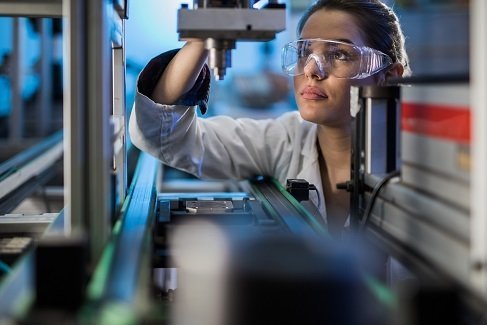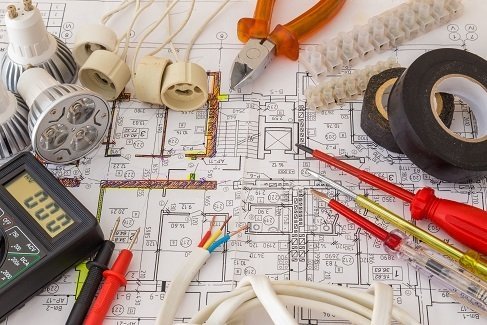The typical image one may think of when it comes to farming is outdoor labor that requires shovels, hoes, and tractors to prepare the soil for planting. Did you know that some farmers don’t use soil at all to grow their crops? They do this with a form of agriculture called hydroponics.
Think you might want to get into agricultural science or a similar field? Take the STEM Type Quiz to find out if it is suited for you!
How is this possible?
In hydroponics, plants are grown in an inert medium like clay pellets or peat moss. Their roots then grow directly into water, which nutrients have been added to in order for the plant to get everything it needs to be healthy. There is no soil involved. In fact, hydroponics is often done indoors as well! Special LED lights help the plants grow and some hydroponic farms consist of large warehouses. This type of agriculture is often able to be built vertically (many shelves tall) because it is much easier to set up a hydroponics system vertically than a typical soil system.
Two distinct advantages of this type of agriculture are a faster mature rate for plants, as well as higher yield. This is because the plant roots are in direct contact with the nutrient solution and it is easier for them to access these nutrients than having to extract them from the soil. A major disadvantage to hydroponics is the fact that it is much more expensive to set up a hydroponic system as compared to growing plants in soil.
Who is doing it?
Jeff Mooney is a hydroponic gardener and chef that was featured on Food Forward, a show by PBS. He grows hydroponic vegetables on a rooftop in New York City and believes that rooftop gardens are the future. He uses the produce from his hydroponics in his restaurant below.
A company called Freight Farms is also using hydroponics to grow gardens in shipping containers, and they aim to create year-round, fresh produce using these farms.
FarmedHere is the largest vertical farm in the nation and the first of its kind. It is located in a formerly abandoned warehouse in Chicago that is 90,000 square feet. With the flexibility of hydroponics, it will be interesting to see what happens next in the field!
Controversy in the Field
There was recently and article posted on Civil Eats that makes the argument that plants grown with hydroponics should not be considered organic produce. Their reasoning behind this is that soil is a huge part of the process in which organic agriculture is founded upon. The National Organic Standards Board recommended that soil-free agriculture should not be allowed to be labeled organic. Despite the controversy surrounding the issue, hydroponics are currently able to be labeled as organic if they follow all of the conditions of organic food (i.e. no synthetic fertilizers).
For another interesting article in the field of agriculture, check out the article, What’s Killing All the Bees?
Photo credit: Creative Commons






Thanks for bringing to my attention that plants can be grown without soil using hydroponics. I’ve never heard of this before, but it sounds like it could be an amazing way to grow plants indoors so climate isn’t an issue. My husband and I recently moved into a new area, and there are a few things I can’t grow in my garden here because it gets too cold. Maybe I could set up a small hydroponics garden in my house somewhere!